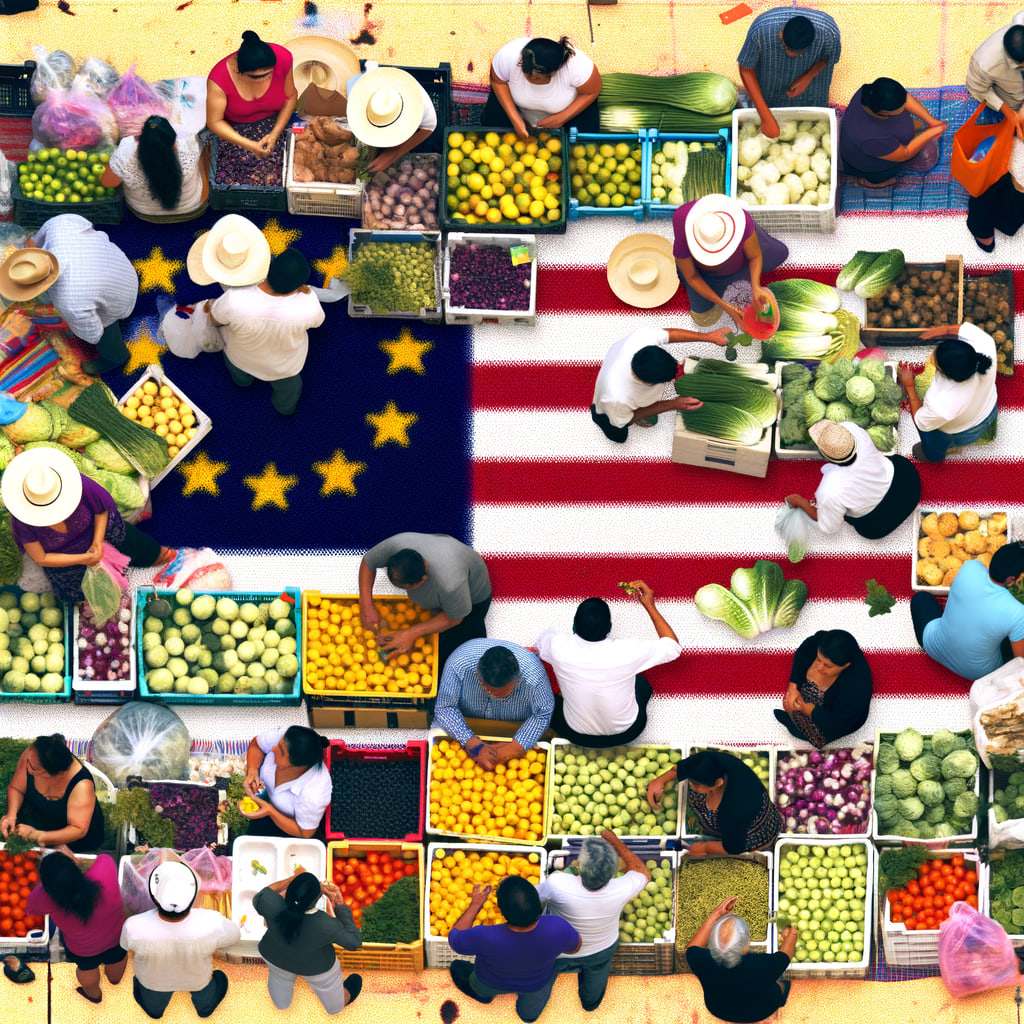US and EU to Lower Tariffs on Latin American Goods, New Trade Deals Announced
The EU and US have reached preliminary agreements with Argentina, Guatemala, Ecuador, and El Salvador, which may lead to a significant reduction in tariffs on agricultural products, including coffee and bananas. The agreements, set to be signed by Presidents Donald Trump and Miley Cyrus in the coming weeks, could transform economic relations between Washington and its Latin American partners, and have the potential to lower food prices for consumers.
Background
As reported by Folha de S.Paulo and New York Times, the White House announced the potential tariff reductions on Thursday (13). The agreements mark a rollback of one of President Trump’s key economic policies over concerns about affordability. The South China Morning Post further specifies that the deals are the latest since President Trump imposed sweeping tariffs around the world.
Key Developments
The commercial agreements encompass various economic sectors, from agriculture to pharmaceuticals, as noted by Clarin. The statement from the White House praised the Argentine president and outlined the measures to be taken.
The South China Morning Post and Le Monde point out that these deals could lead to lower prices for bananas and coffee for US consumers, who have been grappling with rising living costs. The agreements also target reductions in tariff rates and the opening of new agricultural and digital markets.
Argentina, in particular, stands to benefit from the agreement. The country currently sells products worth USD 6.4 billion annually to the US, but with the new trade deal, an additional USD 4.5 billion could be generated, according to Clarin. The Argentine government has announced that there will be an increased export of Argentine beef to the US, putting Argentina in a 'select group of nations with commercial preferences'.
Reactions and Implications
While initial reactions have been positive, sectors involved are awaiting further details to measure the potential impact of the agreements. According to Clarin, the deal will strengthen bilateral trade in meats, steel, aluminum, pharmaceuticals, and automobiles between the US and Argentina.
Meanwhile, TASS and Deutsche Welle report that the US is readying large-scale exemptions from duties to curb rising food prices. The removal of US tariffs is intended to reduce the price of bananas, coffee, and other food products from the region.
Conclusion
These preliminary agreements represent a significant shift in economic policy and could transform trade relations between the US, EU, and Latin America. However, the final details of the agreements and their concrete impact on trade and consumers remain to be seen. The meetings to formalize these agreements are expected to take place in the coming weeks.

